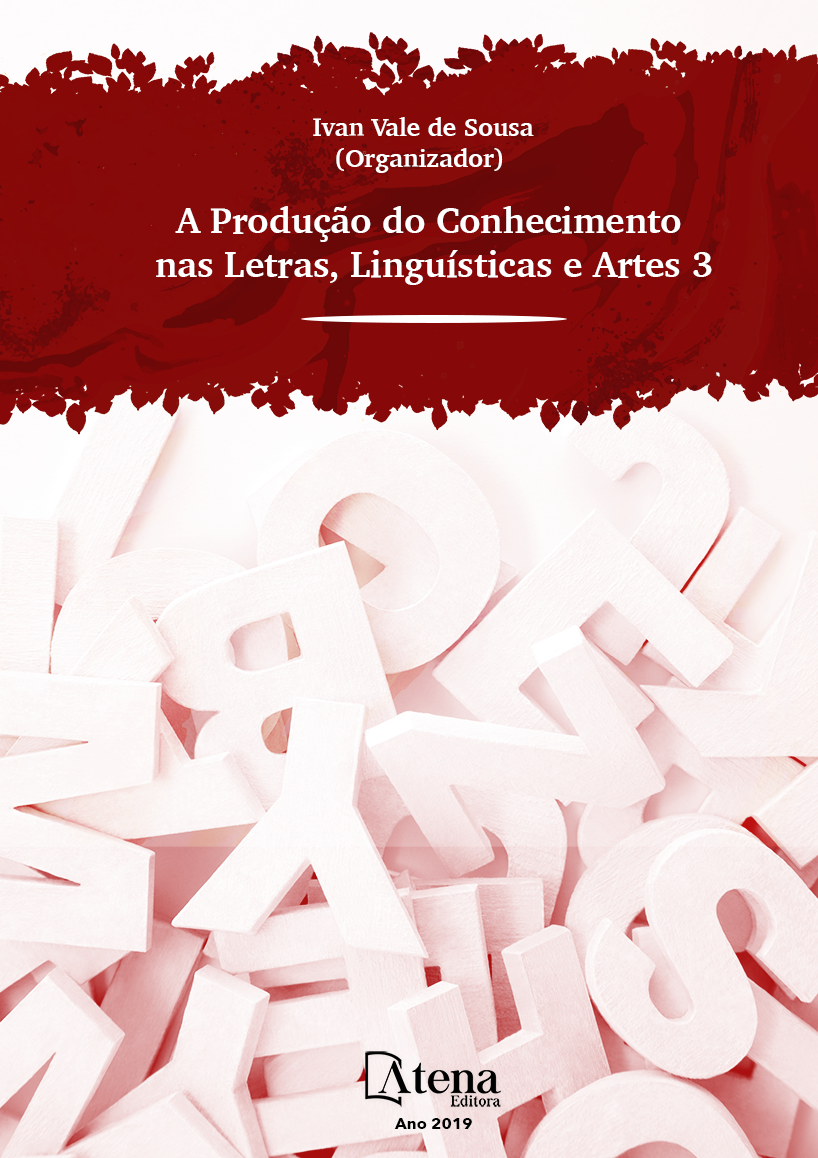
FÁBULAS, PROVÉRBIOS: TECITURAS DA LÍNGUA PORTUGUESA
Este artigo aborda as dificuldades
detectadas no que se refere à leitura e
produção textual nas turmas de 6º e 8º anos
do Ensino Fundamental, de uma escola da
rede pública. Devido a essas dificuldades, é
que surgiu a iniciativa de se trabalhar o gênero
fábula, contextualizando-o com os provérbios.
De acordo com as atividades vivenciadas nas
salas de aulas, a leitura e a produção textual
apresentam-se como aspecto crítico, ou seja,
o nível de compreensão e interpretação textual
é insatisfatório e, por isso, a necessidade de
uma atenção especial nesses aspectos no
que se refere à proficiência da linguagem
no desempenho das atividades escolares e
avaliativas, quanto à leitura e à produção textual.
Para que a leitura seja usada e compreendida
em diferentes contextos, é necessária a
compreensão das esferas discursivas em
que os gêneros são produzidos e circulam,
assim como o reconhecimento das intenções
e dos interlocutores em cada discurso. Esse
artigo teve como objetivo instigar a leitura
e a produção textual através das fábulas e
provérbios como elementos favorecedores do
ensino aprendizagem. Para fundamentação
da pesquisa, entre os teóricos utilizados,
destacam-se Lima e Rosa (2012), Ferreira e
Vieira (2013), Santana (2016). A abordagem
metodológica utilizada foi a pesquisa ação com
recorte qualitativo, a fim de instigar o aluno
no desenvolvimento da oralidade e sobretudo
da produção textual. Os resultados, a partir
desse trabalho, demonstraram que a leitura e a
escrita, sob diferentes estratégias, promoveram
avanços significativos nos discursos dos alunos,
na escrita e (re) escrita dos diversos textos e
interpretações despertadas pelas fábulas e
provérbios.
FÁBULAS, PROVÉRBIOS: TECITURAS DA LÍNGUA PORTUGUESA
-
DOI: 10.22533/at.ed.8141924042
-
Palavras-chave: Fábulas, Provérbios. Língua Portuguesa.
-
Keywords: Fables, Proverbs. Portuguese Language.
-
Abstract:
This article addresses the
difficulties detected in reading and textual
production in the 6th and 8th grade classes of
Elementary School, from a public school. Due to
these difficulties, it was the initiative to work the
genre fable, contextualizing it with the proverbs.
According to classroom activities, reading and
textual production are critical, meaning that the
level of comprehension and textual interpretation
is unsatisfactory and, therefore, the need for
special attention in these aspects in the which
refers to the proficiency of language in the performance of school and evaluative activities, in reading and textual production. For
reading to be used and understood in different contexts, it is necessary to understand
the discursive spheres in which the genres are produced and circulate, as well as the
recognition of intentions and interlocutors in each discourse. This article aimed to instill
reading and textual production through fables and proverbs as elements conducive
to teaching learning. Among the theorists used, Lima and Rosa (2012), Ferreira and
Vieira (2013), Santana (2016) stand out. The methodological approach used was the
action research with qualitative cut, in order to instigate the student in the development
of orality and especially of textual production. The results, based on this work, showed
that reading and writing, under different strategies, promoted significant advances in
students’ discourses, writing and (re) writing of the various texts and interpretations
awakened by fables and proverbs.
-
Número de páginas: 15
- Lindalva José de Freitas
- Jean Brito da Silva


